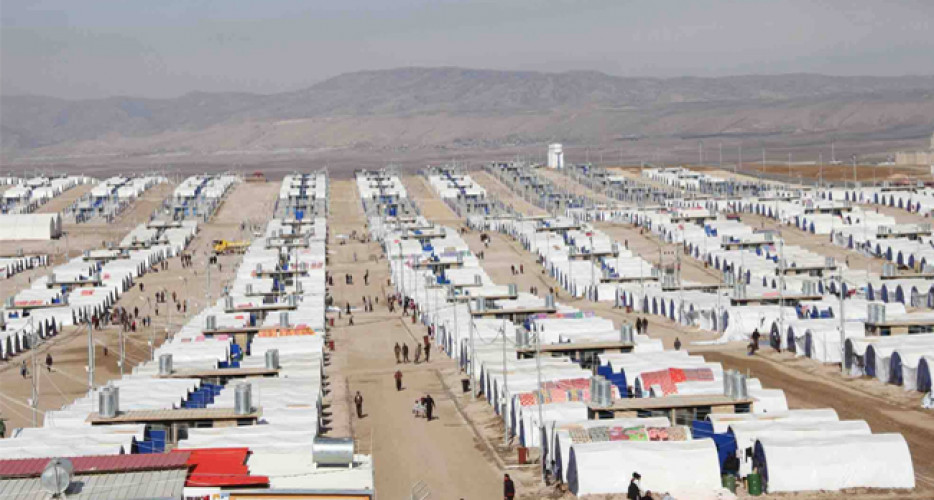
Peregraf- Masood Hadi
Suad has rarely been jobless. When she saw the poor conditions in which her family lived, she immediately took on a job, without knowing that this bravery away from her homeland would make her face so much trouble.
When she used to live in the Western of Kurdistan (Syrian Kurdistan) she was working without having any issues. However, when she tried to do the same in the Kurdistan Region of Iraq, where she lives as a refugee, she started facing many problems, such as abuse and mockery.
"From the beginning, without considering the traditions in Southern Kurdistan [Iraqi Kurdistan], we started working alongside men. Unfortunately, the girls and women whose families suffered from financial issues faced lots of problems."
Suad Ibrahim told Peregraf more about her issues, saying "The girls came faced hardships such as mockery, sexual abuse and rape from those who they worked for."
As Suad says, these problems are new for them, as in Western Kurdistan, it is natural for women to work alongside men. However, war and conflicts have forced them to leave their homeland.
According to the latest figures from the Kurdistan Conflict and Crisis Research Center, there are more than 249 000 refugees from Western Kurdistan and Syrian in Kurdistan Region, 20 000 from Northern Kurdistan and Turkey, and hundreds of Palestinian Refugees. 37 percent of all the refugees are living in camps.
Salim Saeed, head of Public Relations at the Human Affairs Board of the Refugee and Internal Displaced People (IDP), told Peregraf "If the IDP or refugees face any act of violence or sexual abuses, we instantly open a case for it and transfers it to the Directorate to Combat Violence against Women in order to solve the problem."
He also mentions that there are some local and international organizations in the campuses which specialize in women issues. They conduct awareness courses, help them to find job opportunities and solve their problems.
The Western Kurdistan’s refugees had fled to the Kurdistan Region in 2011 when the army conflict started in the country. According to official statistics, during the past year, only 4380 of them have returned to Syria.
Suad Ibrahim is one of those refugees who has been staying in the Kurdistan Region for years. However, she is so frustrated by the way they have been treated, especially accusations by unknown people, and "This creates such a situation that wherever we show up, we are being targeted by men." She added: "Due to baseless accusations about the girls and women of Western Kurdistan, we are not able to work freely."
There are tens of local and international organizations in Kurdistan Region supporting refugee women; however they have not been successful in eradicating this issue.
Zhyan Ahmed is an alias given to a refugee from Western Kurdistan and works as an English teacher. She has been working as a women’s rights activist for years and is aware of this issue well. She is afraid the situation might go back to those days when nobody was permitted to leave the campus, which caused girls and women to develop psychological problems.
"Unfortunately, many organizations visit the campus in guise of solving the women’s problems but they just take some pictures and leave without being of any concrete benefit to the women," Zhyan told Peregraf, "Due to sexual abuse, rape and mockery, many girls and women have left their jobs."
According to the statistics from the Kurdistan Conflict and Crisis Research Center, only a small percentge of the refugees are working, thus 65 percent of them are dependent on the Kurdistan Region of Iraq (KRG) and on organizations’ aids.
Aram Mohammed, the director of the Directorate to Combat Violence against Women in Duhok, told Peregraf, in Duhok province, in 2018, there were 33 cases of rape against refugees and IDPs.
According to his statistics, during the past year, refugees and IDPs have filed a lawsuit 1996 times, and 1550 of them have been settled by the court.
However, the bravery of Suad and other refugee girls, as they say, if there is no solution to this problem, they cannot continue to endure the hardship, "As you see now! After years of working with organizations and in public places, I could not carry on, as I had to surrender to them. But I did not do that so I am at home now," Suad Ibrahim said.